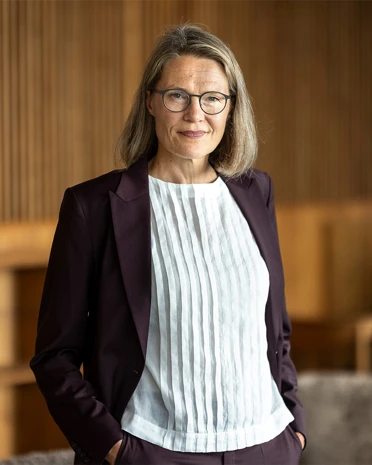Information society services is a collective designation for services that normally (but not always) are provided for remuneration and delivered online at the individual request of a user, e.g. search engines, media monitoring services and so-called news aggregators.
Online content-sharing services is a specific form of information society services. Examples include platforms such as YouTube, Instagram and Facebook, which store and give access to copyright protected materials, such as music and films, uploaded by its users.
In the published draft legislation, the Ministry of Culture proposes that the services in question shall comply with a number of new obligations. If these new obligations are not met, the services may be held liable for both damages and fines.
New obligations for information society services
According to the draft legislation, press publications, e.g. content in newspapers and on news sites, shall for a period of two years after publication only be used by information society services through agreement with the publishers.
However, the agreement requirement shall not apply to hyperlinks to nor to use of single words or very short excerpts from the publications. It follows from the draft legislation that very short excerpts shall not be 11 words or longer. Beyond that, the draft legislation contains no clear directions as to how many words an information society service shall be able to use from a given press publication without prior agreement with the publisher. Yet, it appears that the use of single words or very short excerpts by information society services shall not undermine the investments made by publishers of press publications in connection with the production of content.
The requirement in relation to press publications will primarily be relevant for media monitoring services and news aggregators. However, social media sites such as Facebook, Twitter and LinkedIn are likewise expected to be affected, as these services often automatically add a short text snippet when a user posts a hyperlink to an article.
The draft legislation includes a so-called extended collective license, under which information society services may clear all necessary rights by entering into a single agreement with a collective management organisation approved by the Ministry of Culture.
New obligations for online content-sharing services
According to the draft legislation an online content-sharing service (hereinafter referred to as a platform) shall:
- as a general rule, enter into agreements with the rightholders regarding the use of protected materials on the platform,
- secure, that there is no blocking of protected materials, if the copyright legislation permits the use in question, e.g. as a result of licensing agreements or because the material is presented in the form of quotes or other similar exceptions granted in the copyright legislation,
- inform users that protected materials may be used freely in accordance with the exemptions granted in the copyright legislation,
- make available a complaint mechanism through which users may have possible complaints regarding the blocking of protected materials processed with reference to the copyright legislation, and
- upon request, give rightholders insight into the processes by which it is ensured that the use of protected materials on the platform is lawful.
With regard to the platforms’ obligation to enter into agreements with the rightholders, it is stated in the draft legislation that this obligation can be fulfilled both individually and via collective management organisations, e.g. Koda and Copydan. Given the vast amounts of protected material, it is to be expected that – in practice – the platforms will most likely primarily enter into agreements with the collective management organisations.
If a platform has not entered into an agreement with the rightholders, the platform may in certain circumstances nevertheless be exempted from liability, including if the platform has made best efforts to ensure the unavailability of protected materials and has acted expeditiously to block copyright infringements upon receiving a sufficiently substantiated notice from the rightholders.
It is stipulated in the draft legislation, that the requirements for the platforms in this connection are interpreted strictly, that the detailed content of the requirements must be determined in an ongoing collaboration with the rightholders, and that the platforms i.a. “should undertake the necessary IT development” to live up to the requirements. However, it is not stated in more precise terms, what the platforms need to do exactly, or how proactive they need to be, in order to achieve exemption from liability.

